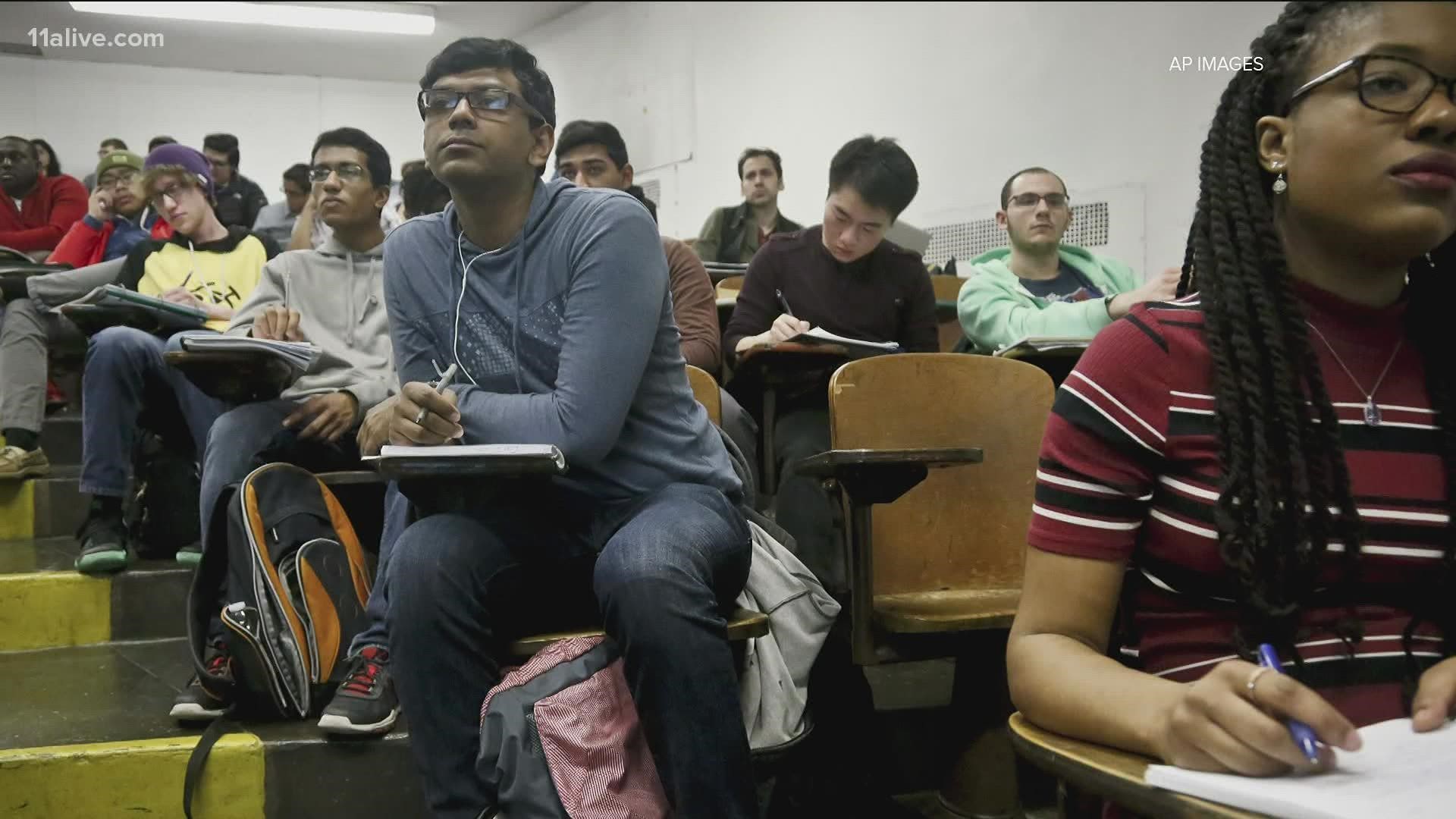ATLANTA — As students return to college campuses, many are doing so with a heavy dose of anxiety.
The campus is bigger. So are the classes and the expectations.
Everything was going according to plan for Kennesaw State sophomore Trey Morse.
Then came the pandemic.
Two of his roommates dropped out.
Trey started having doubts.
“I started to see my friends starting to struggle,” said Morse. “I started to question if I’d made the right decision as far as my major. Everything started to feel kind of foreign to me.”
Nearly 3/4 of the college students answering a survey by the College of Nursing at Ohio State expressed feelings of anxiety, burnout, and depression. That’s up from the 40% who admitted to mental health issues a year ago.
Leaving home for college can be the first major change in a student’s life. Add a pandemic and the uncertainty grows.
Trey Morse’s mother is Dr. Laura Morse, a licensed professional counselor.
“Kids are working on their capacity to deal with their own emotions let alone the heaviness of others,” says Dr. Morse.
Dr. Morse says college students are getting better at recognizing the signs of anxiety.
Social media lets them know others are struggling.
“That can be a good thing in a sense that, I’m not alone, but it can be a negative thing. ‘I’m not alone, all these things are happening,’ and it can compound your own stress and reality.”
Trying to keep up with the constant changes brought on by the pandemic while navigating the competitive world of college is stressful.
“This generation has been raised to start to learn how to compete very early,” says Dr. Morse “We can’t overstate how difficult and stressful this has been for our youth.”
A summer of reflection helped Trey overcome his doubt.
“My advice is staying calm. Everything will work itself out,” says Morse.
A survey at Boston University found 94% of the students questioned would not judge others for seeking help with their mental health.

